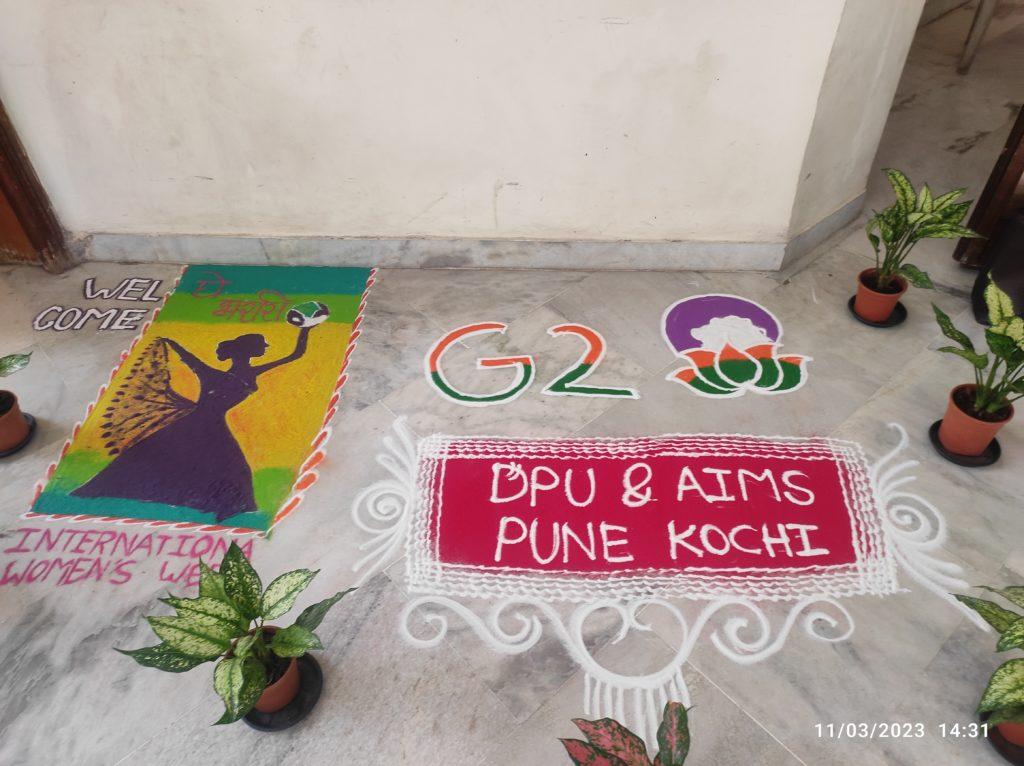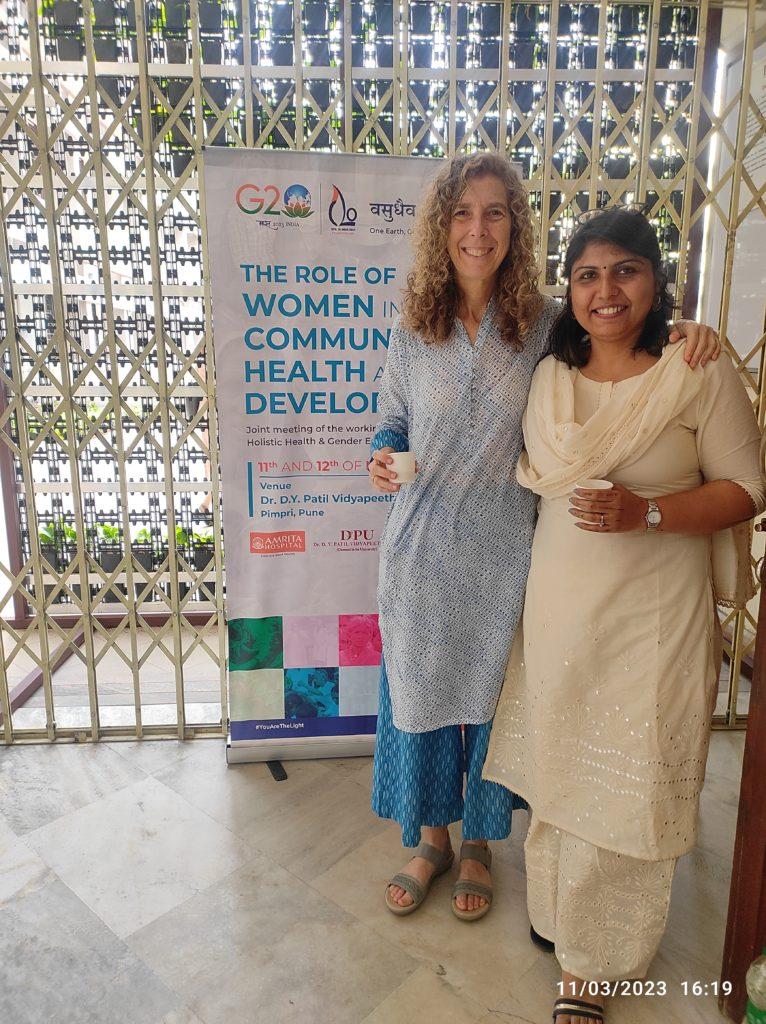
As we see women taking up leadership positions around us, we often feel that we have come a long way in terms of achieving gender equality! It is only when one sees the startling facts around female representation that one realizes how much work remains to be done. Women hold only a quarter of global health leadership positions, while 75% of health care and 90% of the social care workforce comprise women. The disproportionate impact of COVID on women and girls globally, with India certainly a case in point, further aggravated barriers towards equality. In India, the pandemic resulted in an estimated 2.4 million unintended pregnancies in the first six months of the pandemic, for example. The burden of unpaid care work for Indian women, already 8-9 times higher than for men in “ordinary” times, increased further during the pandemic. In addition, 1 in 10 women from low-income households ran out of food or limited their food intake during the pandemic, and while women made up just 24 % of the workforce before Covid, they accounted for 28% of all job losses during the pandemic. The intersectional impact of gender, race, religion, age, amplified these barriers.
I highlighted these startling facts in my opening address for C20, a G20 group for civil society organizations. As you know, India hosts the G20 this year, and a first in-person C20 event, titled “The Role of Women in Community Health & Development”, was organized on 11-12 March, in Pune. The meeting aimed to emphasize the unique opportunity provided by the G20 to integrate the gender equality agenda into not only health policies but all public policies in India. Building on the efforts by Women in Global Health (WGH) India to amplify the contributions and challenges of Frontline Health Workers (FLWs) and women during COVID, I raised some pertinent issues in my talk, which I believe need close policy attention and action. These include:
a) Demanding a new social contract for FLWs with fair pay, decent and safe working conditions, and social security (all long overdue); including them and their lived experiences into the key policy decision-making spaces;
b) Going beyond binary, and working towards providing respectful and equitable access to care for all population groups regardless of their gender identity or other intersectional marginalities, especially for sexual and reproductive health (SRH) care services;
c) breaking the taboos, myths and stigma around seeking SRH and mental health care services; and
d) most importantly, the need to actively engage men as allies, mentors, supporters, to truly make progress on the gender equality agenda in a developing country like India.
Little did I know that this would ring especially true later in the day, in the form of the backlash I would receive, when challenging power and privilege (see the section below) …
But first a few general comments on the C20 meeting still. It was surprisingly pleasant to see this C20 event faring well on so many levels as compared to other typical in-person events these days. Beginning with no registration fees, which eliminated the main barrier to access the event, online or in-person. Workshops on the agenda covered multiple pertinent issues including menstrual health, sexual and reproductive health, mental health, and nutrition, as opposed to focussing solely on maternal and child health, as is usually the case in many women and women’s health related conferences. And unlike the typical jampacked sessions with numerous presentations/speakers, here the sessions were well spaced out with one key presentation on the identified theme, coupled with 1-2 ‘Udaharans’ (i.e. practical examples of successful interventions or programs relevant to the theme), providing a good 30–40-minutes’ time to engage with the audience, to collectively reflect on the key issues, approaches, and potential solutions. Moreover, the event managed to find a good balance between in-person engagement and online participation, not an easy feat in hybrid events, as we all know by now.
The conceptualization of Udaharans as one of the fundamental components of C20 planning, could serve as a concrete way of collecting best practices and successful examples of programmes, initiatives and interventions that have had an impact on the ground. The Udaharan presentation of Constellation’s SALT (Support, Appreciate, Listen-Learn, Transfer) approach for developing and implementing community-led programmes and interventions was really the “catch” of the whole event for me. ‘Listening’ to people, and communities, their concerns and needs, and the solutions they want, emerged as a continuous thread across all the workshops and discussions. This conveyed not only the need to be grounded, it also connected strongly to the amazing work done on the ground by Amma (aka ‘the hugging mother’) and her vision as the Chair of C20. Moving forward, it will be key to identify how the policy recommendations generated through C20 and various other groups of G20, along with the Udaharans can be distilled for inclusion in the policies and then to implementation. A lot more critical thinking is needed to bridge this gap.
Challenging power and privilege comes at a cost
But let’s go back to the rather unfortunate backlash I hinted at earlier in this article, as I’m afraid it showcases how far we still have to go on gender equality.
While my address was very well received and appreciated for setting the tone for this important C20 event, the (grim) irony was that later that day, I was dealing with an aggressive backlash in a WhatsApp group, from a set of (largely) male PhDs of my alma mater (!) on calling out an 8-speaker manel on Urban Renewal Through Redevelopment: Towards Building Sustainable Indian Cities (organized by Adani University in Ahmedabad). This pushback took the shape of nasty and disrespectful comments around my “wokeness”, merit, “failure” to see the experience and status of the panellists and potential quality of the discussion when arguing for representativeness (why do we assume losing quality when going for diversity?), refusal to object to “all women” panels, and even wondering “whether I would also look for gender equality in a gay marriage”. In attempting to explain my position and emphasizing the necessity to include women as speakers and their lived experiences in public discourses such as these, the discussion in this WhatsApp group got extremely toxic with demeaning and harsh comments directed specifically at me. A female friend who joined in support also got trolled along with me. I mean, what kind of education did we achieve? What is the use of these PhDs we boast about, if we are not able to engage respectfully in critical reflections?
I was able to recover from the extreme distress triggered by this type of public trolling (which I encountered for the first time), thanks to the WGH Community (Global and Indian). The WGH community not only bolstered my conviction, but also provided me with the mechanisms and resources to respond strongly to situations such as these, as well as the inspiration to transform this distressing situation into an opportunity for increased advocacy for this cause. It was a classic demonstration of how toxic masculinity (read ‘men with assumed high positions of power and knowledge’) attempted to stifle the voices of women who critically assess the diversity of experts. Not all men, obviously, as in recent years some men have refused to serve on manels that lack diversity, not only in terms of gender, but also other criteria of representativeness. WGH and many allies have denounced a number of such manels in the past, with organizers apologizing for the lack of representation and even postponing the event. Many organizations and groups are pledging no-manel policies. It is time for men to lean out. Or if you want, a bit blunter: all-male panels are not going away until we get up and walk the heck out!
This incident opened my eyes to the unfortunate truth of how blind and insensitive our community of “well-educated elites” can be towards gender and other significant aspects of diversity. This also raises a poignant question on all those top B-schools and institutions that brag about their national and global rankings. Do these rankings also include parameters on the inculcated values of diversity, equity, and inclusion, along with respect and humility in its staff, professors, and students?
Well, they wanted to silence me on that particular day, but failed miserably as I wrote about it publicly and will use this as my springboard to write more, speak out and push for the gender equality agenda in all policy spaces.
Even more forcefully.
